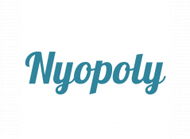Download | Subscribe
In part two of our interview with Paul Singh he explains aspects of the invisible game being played in business.
Eh You Need My Guy, Rochester Startup Takes On Angie’s List INTERVIEW
 Nothing says recommendation like when your good buddy says “eh you need my guy”. Whether you’re looking for a plumber, deck builder, photographer, heck even a birth coach. Whatever independent contracting service you need, a new Rochester startup called You Need My Guy has someone for you.
Nothing says recommendation like when your good buddy says “eh you need my guy”. Whether you’re looking for a plumber, deck builder, photographer, heck even a birth coach. Whatever independent contracting service you need, a new Rochester startup called You Need My Guy has someone for you.
When we first heard about You Need My Guy we immediately drew a comparison to top ranking, publicly traded Indianapolis startup Angie’s List. You Need My Guy’s founder Joe Cassara says that YNMG is different because Angie’s List is a paid model with mostly blue collar providers. They also offer no accountability to insure the identity of users. While Angie’s List is a great resource for some, they are plagued with stories about bad experiences sprinkled all over the internet.
You Need My Guy is the hybrid in the middle. You can find accountants and carpenters on the startups site at youneedmyguy.com
YNMG integrates social networks by allowing perspective clients with links to their perspective service providers Facebook, LinkedIN and Twitter profiles. This way users can vet out their service providers, going a little deeper than traditional reviews and referrals. Review systems can be plagued with fake reviews, created by service providers to “push down” any bad reviews. Of course in the case of referrals most service providers only provide referrals from people who have had the best experiences.
One of the best assets for this New York startup is Cassara himself. He’s thoroughly entrenched in the up state New York startup ecosystem. He has a background in strategic consulting. But what’s more important is that Cassara is also the managing partner of Harvest Ventures an early stage venture-funding firm as well as a mentor at New York accelerator StartFast.
We got a chance to interview Cassara about You Need My Guy. Check out the interview below:
With The Animated Gif Back, DC Startup MyFaceWhen Is Ready
 Way back in the 90’s (saying that is so wrong), animated gifs were typically banners that someone who was building a website would use to attract attention to something or another. The more popular animated gifs were dancing bears, christmas lights, and even cars driving along in the middle of the web page.
Way back in the 90’s (saying that is so wrong), animated gifs were typically banners that someone who was building a website would use to attract attention to something or another. The more popular animated gifs were dancing bears, christmas lights, and even cars driving along in the middle of the web page.
Nowadays banner ads are fading fast and the animated gif is actually coming back.
Thanks to mobile usage and social networks animated gifs are almost, if not more popular than meme’s. If you want to get your point across in a cute, happy, or even angry way, you can say it with an animated gif. Technology has vastly improved over the past two decades as well, which means better animated gifs.
Of course there are places that are stockpiling cute, one off animated gifs that you can use to send to your friends and family but just like meme’s witty people want to create their own. That’s where Rodney Curl and his startup MyFaceWhen come into the picture.
The Howard University graduate has gotten the creation of animated gifs down to a science. In fact from start to finish you can get an original animated gif ready to send out in under 10 seconds. Curl also tells us if you want to use a stock gif MyFaceWhen will take you out to Reddit where gifs are a plenty.
We’ve seen a vast variety of startups come out of Washington DC. Cur’s MyFaceWhen is a fun mobile app and a nice break from the traditional tech startup.
We got a chance to talk to Curl. Check out our interview below.
Colorado Startup SeedLauncher Joins The Online/Offline Crowdfunding Space
 Crowdfunding could have very well been the most popular startup space in 2012. Crowdfunding startups came out of the woodwork for every industry and everybody. Even the porn industry got it’s own crowdfunding startup which we actually covered here.
Crowdfunding could have very well been the most popular startup space in 2012. Crowdfunding startups came out of the woodwork for every industry and everybody. Even the porn industry got it’s own crowdfunding startup which we actually covered here.
One of the niche’s within crowdfuding that’s heating up right now is hybrid crowdfuding sites. These are the crowdfunding sites like SockStock and SeedVille, that fit in this hybrid space.
So what’s a hybrid crowdfuding site?
Crowdfunding sites that most people are familiar with function like Kickstarter and Indiegogo. These are sites where people can post whatever project they are working on and the crowd funds those projects. The project creators can be anywhere in the world because everything is done online.
In exchange for funding or a donation if you will, the entrepreneur getting their project or startup crowdfunded, gives the donator, or funder, some kind of perk. The more money that gets donated, the better the perk.
To us, a hybrid crowdfunding site is one that utilizes the internet for the funding but the business is local. Say you have a favorite ice cream shoppe around the corner from your home. The owner of the shoppe wants to expand but doesn’t have the money. He can go to a hybrid crowdfunding site and raise the money, and instead of sending perks in the mail, contributors can come to the local business and get their perk.
That’s exactly what Colorado startup SeedLauncher does. We got a chance to talk with SeedLauncher’s co-founder Jeromy Sonne about crowdfunding and the Colorado startup scene.
Check out the interview below.
New York Startup Skedj Makes Your Schedule Social, And Really A Lot of Fun
 If you’re a long time reader of nibletz.com The Voice Of Startups Everywhere Else, you know that we’re a little under enthused about “event discovery” and “social calendar” startups. Our good friend Danny Nathan at iwannanom a New York startup we profiled earlier this year, knows how we feel about “event discovery” and “social calendar” but still brought us Jason Horowitz and Skedj. We’re glad he did.
If you’re a long time reader of nibletz.com The Voice Of Startups Everywhere Else, you know that we’re a little under enthused about “event discovery” and “social calendar” startups. Our good friend Danny Nathan at iwannanom a New York startup we profiled earlier this year, knows how we feel about “event discovery” and “social calendar” but still brought us Jason Horowitz and Skedj. We’re glad he did.
Horowitz is no stranger to startups and no stranger to the fact that we need another event discovery startup like Governor Chris Christie needs another extra large pizza. To that end Horowitz told us:
“I know event discovery, event sharing and social calendaring don’t sound like new territories to conquer. We believe Skedj takes a unique approach to these challenges and, consistent with the way we plan our lives, strikes a balance between personal and social. The result is one personalized stream of your plans and possibilities, making discovering things you want to do, and keeping track of the things you need to do, easier than ever before.”
After checking out Skedj ourselves we agree. One of the things about Skedj that resonates with me from the start is that Skedj is learning my schedule not suggesting I go see every country music show just because I happen to like one song by Sugar Land. Of course many of you know the story about one “social/event discovery” app that suggested a bunch of great dog parks because at one time in my life I had liked Mark Zuckerberg’s dog.
Whether it’s the intent or not, Skedj takes into consideration the primary user FIRST and the social discovery/sharing part second. That’s why nearly 300 words later we’re still talking about it. In fact, we interviewed Horowitz. Check out the interview below.
Boston 500 Startups Startup: Privy To Make Online Advertising Easier And Transparent
 By now every new business owner knows that they need to have some kind of internet presence. Many also know that they need to advertise online. After business owners decide they need to advertise online, where to go and what to do often becomes a headache.
By now every new business owner knows that they need to have some kind of internet presence. Many also know that they need to advertise online. After business owners decide they need to advertise online, where to go and what to do often becomes a headache.
Google’s AdWords product is typically one of the easiest points of entry into online advertising. If you live in a small or medium sized market AdWords can work perfectly for you. However, when you get into larger cities, signing up and using AdWords can be a shot in the dark.
AdWords algorithm based advertising can be confusing to someone with very little online experience. Naturally, the more money you put into a platform like AdWords the better your conversions will be. Or at least that’s what many advertisers think.
When a company with a new online presence sprinkles in social media and other possible revenue streams, the overall plan can become a disorganized mess. It doesn’t take long to lose track of where your ad dollars are going, and how different efforts are paying off.
Boston startup Privy is creating a much easier online advertising platform to use and understand. Privy’s founder Ben Jabbawy is hoping to add a layer of transparency to online advertising that hasn’t existed before. Jabbawy wants to make it easy for local businesses to buy online advertising and know exactly how many customers they get for every dollar they spend.
Sounds easy enough right?
Dave McClure liked the concept enough to bring Privy out to Mountain View California for the current session of 500 Startups. We got a chance to talk to Jabbawy about Privy, his hometown of Boston and what makes advertising work. Check out the interview below.
Boston Startup: Nyopoly, Negotiate Your Price On The Hottest Styles
 While most online shopping sites would die at the thought of having one singular customer, a new Boston startup called Nyopoly prides itself on making customers feel that way. Nyopoly is a new online shopping site that pairs consumers who like high fashion, chic, luxury items with retailers. From there the customer negotiates one on one with the seller for the best possible price. Nyopoly’s co-founder Joe Shartzer tells us that it’s this one one one negotiating that led to the name Nyopoly.
While most online shopping sites would die at the thought of having one singular customer, a new Boston startup called Nyopoly prides itself on making customers feel that way. Nyopoly is a new online shopping site that pairs consumers who like high fashion, chic, luxury items with retailers. From there the customer negotiates one on one with the seller for the best possible price. Nyopoly’s co-founder Joe Shartzer tells us that it’s this one one one negotiating that led to the name Nyopoly.
Shartzer tells us that Nyopoly’s process is easy and natural because it occurs between a single buyer and seller.
Nyopoly brings their members curated, trendy must have accessories, jewelry, watches, handbags and a more. Their site is going through a major remodel which will reopen on November 5th. They’ll be adding women’s fashion to their totally redesigned site.
We got a chance to talk with Shartzer, who is the company’s marketing guru. Check out the interview below.
Australian Startup Yolpme Is Crowdsourcing Social Media For Jobs INTERVIEW
 With the recent surge in job related startups, founders are getting more and more creative with resources for recruitment. We’ve seen great socially charged recruiting and job startups like Barrel of Jobs in Washington DC. We also recently interviewed Employtown in Denver, they offer a reverse job market that’s definitely worth checking out.
With the recent surge in job related startups, founders are getting more and more creative with resources for recruitment. We’ve seen great socially charged recruiting and job startups like Barrel of Jobs in Washington DC. We also recently interviewed Employtown in Denver, they offer a reverse job market that’s definitely worth checking out.
Today we’re bringing you the story of Australian startup Yolpme. Yolpme is a new recruitment platform that is combining crowdsourcing with social networking. Yolpme uses crowd sourced referrals through targeted media channels to find the best talent for companies.
To increase the value of the candidate and to make placement more likely, Yolpme offers referrers a referral fee of 3-5% which means that on a position that pays $100,000 the referrer could see a reward of $3,000. This is a value proposition to the referrer, definitely worth checking out.
Yolpme is also working to put a ranking in place for referrers so that referrers can’t just spam open positions. Companies will be able to see the ranking for the person giving the referral which will reflect on the potential quality of the candidate.
Right now Yolpme is available in Australia but they are hoping to expand to the US and Europe next year. We got a chance to talk with the team behind Yolpme. Check out the interview below.
Walk Thru’s Made Easy With Israeli Startup WalkMe
 By a show of hands how many people out there have “walk thru” still on their to-do list. Everyone wants to do a great walk thru for their company, business or startup but many people have the hardest time getting this project off the ground. Either they don’t think they have access to the resources to create great “walk thru’s” or they don’t think they can afford it.
By a show of hands how many people out there have “walk thru” still on their to-do list. Everyone wants to do a great walk thru for their company, business or startup but many people have the hardest time getting this project off the ground. Either they don’t think they have access to the resources to create great “walk thru’s” or they don’t think they can afford it.
Well a startup in Tel Aviv called WalkMe is about to solve both of those problems for everyone.
No matter how easy or complex your task is, WalkMe wants to provide you with the tool to create an easy step-by-step “Walk thru” guide to everything.
Walkme is a simple to use plugin. Once you have it installed you just move about your screen in the natural steps it takes to do whatever process you want to teach. As you begin to complete each step you write what the step is, how to do it and add your text balloon and move on to the next step.
You can easily create “walk thru” instructions while you’re creating your WalkMe walk thru.
Anything from how to complete an order, to how to change your password, can easily be explained using Walkme. If you want to show someone an easy to use trick on your own website, you can create a WalkMe “walk thru”. Basically if you can do the task you want to teach, and if you can use a mouse, than you’re in business.
We got a chance to talk to the team from WalkMe about their easy to use tool. Check out the interview below:
Meet Romania’s Mobile App Developer Referral Startup: BigBangJobs
![]() Job boards are a dime a dozen these days. The job board was a space once owned by just two online companies, Hot Jobs (Yahoo) and Monster.com. Now there are job boards for just about everything and everywhere. It’s innovative new career minded sites, and category specific platforms like, WorkForPie and Path.to that are prevailing in the United States.
Job boards are a dime a dozen these days. The job board was a space once owned by just two online companies, Hot Jobs (Yahoo) and Monster.com. Now there are job boards for just about everything and everywhere. It’s innovative new career minded sites, and category specific platforms like, WorkForPie and Path.to that are prevailing in the United States.
But what about outside the U.S.?
Well Romanian startup Big Bang Jobs is trying to solve the problem of connecting mobile app developers to people hiring mobile app developers in a way that cuts out a lot of the clutter found on more traditional websites.
BigBangJobs is a two way street. They function as a place where great mobile developers can find exciting new projects to work on, and where startups and established companies can find the perfect developer for their project. BigBangJobs is a mobile web developer community.
Unlike many other startups, BigBangJobs has a revenue model in place. After a quick vetting process, those developers that wan’t to participate in the program are admitted free. Those companies listing projects pay a one time fee of $99. While that may seem a little steep, BigBangJobs is looking to produce real results and get mobile app developers to work as quick as possible, in situations they want to be in.
We got a chance to talk to the founder of BigBangJobs, check out the interview below.
Don’t Forget The Flowers An Interview With London Startup BelateMeNot
 Have you ever forgotten a loved ones birthday? Are you one of those guys or gals that can’t even remember to send flowers. Well fear not, there is a London startup called BelateMeNot that will make sure you never forget the flowers again.
Have you ever forgotten a loved ones birthday? Are you one of those guys or gals that can’t even remember to send flowers. Well fear not, there is a London startup called BelateMeNot that will make sure you never forget the flowers again.
As you can imagine from the descriptive introduction or from the company’s name, BelateMeNot is a flower scheduled delivery service. It’s designed for people in a committed relationship or maybe someone who sends flowers to their family on scheduled days, to order the flowers one time for eternity and forget about it.
Lawrence Suss, a serial entrepreneur since high school, founded BelateMeNot to help men and women everywhere, who forget to send flowers. He likes to think of his startup as “relationship insurance”. No worries either, your loved one won’t receive a card that says “sent from BelateMeNot the scheduled delivery service” they’ll just think you remembered the flowers this time, and you’ll score major points.
We got a chance to talk to Suss about BelateMeNot and London’s thriving startup scene. Check out the interview below:
New York Startup: Cheek’d Brings Back The Actual Calling Card For Romance
 New York startup Cheek’d is bridging the online dating world with old school real world romance and bringing back the physical calling card. In an time where everyone knows the now infamous line:
New York startup Cheek’d is bridging the online dating world with old school real world romance and bringing back the physical calling card. In an time where everyone knows the now infamous line:
“Hey I just met you, and this is crazy, here’s my number, call me maybe”
Lori Cheek and her innovative startup are bringing back traditional calling cards for people to hand out to people while at the gym, the club, the bar, a restaurant or even walking down the street. From the calling card the person given the card can engage with the person who handed out the card via the web portal.
The explosive hit by female pop sensation Carly Rae Jepsen actually brings back memories for the parents of the teeny boppers listening to the song ever so loudly in the car. In fact, even in my 30’s I remember jotting my number down on a piece of paper and giving it to a cute girl or two at the ice rink in the 8th grade.
Sure back then all we could do was leave a phone number. Now through Cheek’d you can create a profile online and point people to it via the Cheek’d card. Some singles have resorted to having their facebook profile links on their business card or personal cards. Some even jot their Facebook profile down on that slip of paper they hand to a potential love interest. We all know that Facebook may not be the place we want someone we’re interested in to check us out.
Cheek is actually an architect by trade and now she’s designing new architecture for the dating space. Check out our interview with her below:
Washington DC Startup: Review Signal Launches More Trusted Review Platform
 Washington DC startup Review Signal launched last week after 19 months in the making. Founder Kevin Ohashi has developed a product review platform that can be more trusted than traditional platforms like Yelp or Google reviews. Review Signal analyzes data points across social media to gauge the pulse of what people think about a particular product or service.
Washington DC startup Review Signal launched last week after 19 months in the making. Founder Kevin Ohashi has developed a product review platform that can be more trusted than traditional platforms like Yelp or Google reviews. Review Signal analyzes data points across social media to gauge the pulse of what people think about a particular product or service.
While there are hundreds of verticals that Review Signal could be applied to Ohashi has started with web hosting reviews as his first full on demonstration of how the system works.
Review Signal mines the data across social networks, and then separates the “mentions” for a specific product or service into good or bad. As Ohashi tells us in the interview below, if there are 100 tweets about a product with 50 being positive and 50 being negative, the raw review score would naturally be 50%. Now people aren’t forced to read long, sometimes biased long-form reviews.
One of the biggest problems we’ve seen with traditional reviews stems from the reason the average person would write a review anyway. Aside from career reviewers and those types that have to review absolutely everything, the bulk of the rest of reviews on review sites come when a customer is raving about a company, product or service after having a great experience or after they’ve had a bad experience.
You don’t get a lot of “average” everyday folks that take the time to write a review about a run of the mill or average experience.
For example say you went to a decent (not exceptional, just decent) restaurant and had the best chocolate cake ever. You’re much more likely to tweet “had this awesome chocolate cake” with a photo, rather than write a 5 paragraph review on the restaurant itself or, heck, even the chocolate cake.
One of the most fascinating parts about this story is how it came about in the first place. Ohashi actually based Review Signal off the idea he used for his masters thesis.
Check out our interview with Ohashi below. He does a really great job of explaining how the system actually works.
San Diego Startup: The Tip Network Is PayPal For Servers
![]() Although restaurant and hospitality industry technology has improved by leaps and bounds over the years, one area where it still falls short is tipping. That’s where San Diego startup The Tip Network comes in.
Although restaurant and hospitality industry technology has improved by leaps and bounds over the years, one area where it still falls short is tipping. That’s where San Diego startup The Tip Network comes in.
With the economy the way it is these days restaurant owners and managers are mice-managing their shift schedules even more than they ever have before. Owners are managers are quick to make cuts to their wait staff the minute they can. This causes a major pain for servers. In a lot of restaurants servers either need to stick around after getting cut or at the end of their shift, come back at closing time or wait until the next day to reconcile their tips and tip out. This can be a major pain point for servers.
The Tip Network offers solutions for problems like that and other problems that plague proprietors of tip based businesses.
Tip Network is a cloud based tip management solution for independent and chain restaurants. We enable managers to easily track, allocate, and distribute tips digitally to their staffs Tip Network. Each staff member has their own unique Tip Network profile that allows them to (1) send money to any account, at any bank (2) send money to anyone in the network, (3) and many other things down the road .
Using the Tip Network, servers take ownership and management of their tips over, instantly. Now, from the comfort of their own home, or device they can tip out to support staff, move tips to their bank accounts even pay back loans to other servers. Like PayPal, with The Tip Network users get their own ID and can move their tips around anywhere in the network.
Founder Greg Crisci has first hand experience as a server and knows the pain that his startup hopes to solve. He’s busy these days looking for integration partners and preparing the implementation of his new tipping alternative. He did take a few minutes to talk to us though. Check out the interview below:


